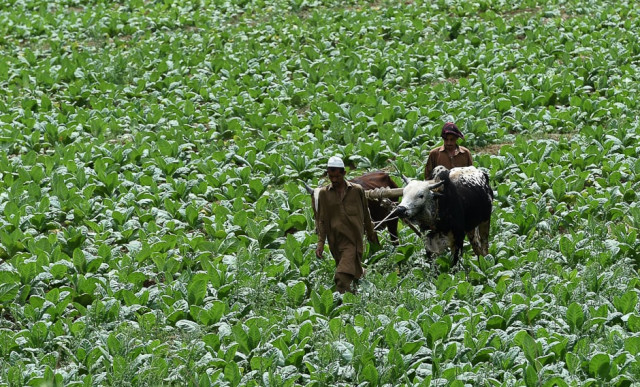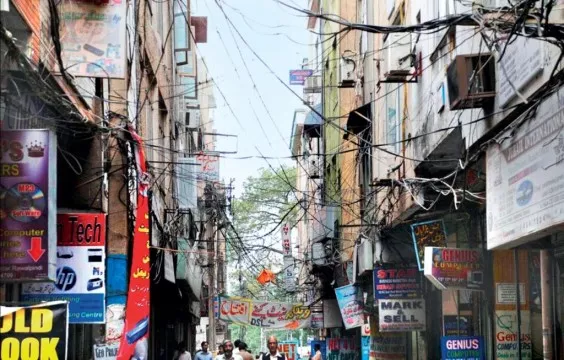Khushab farmers still depend on streams, springs
Official says local committees have been formed to manage water supply

PHOTO: AFP/FILE
Farmers on the plains on both sides of the mountain range in the area benefit from the natural sources and earn millions of rupees every year by growing wheat, maize, gram, millet, rice, vegetables and fruits.
In addition to the flourishing agriculture, many villages are also dependent on spring water.
Farmers of Katha Saghral area grow tomatoes on hundreds of acres that are sold in markets across the country. Most of the people of the area are dependent on vegetable farming. Onions are also widely grown. The crops are irrigated by the Sultan Mehdiwala stream.
Row over wheat purchase persists
Large areas of farmland in Nali and Nari areas are irrigated by the famous local waterfalls. Water from them is also supplied to villages through pipes for drinking.
A villager, Allah Deen, said the cost of repairing the pipes and ensuring water supply is borne by local people.
The agricultural lands of Kund, Khaliqabad, Pindi and Vehee areas are irrigated from Kachiwala stream. The water of Nara stream irrigates the fertile land of Noon, Sherwali, Nara and adjoining areas. Jibbi stream is used for the drinking water by the people of the locality having the same name.
Similarly, spring water flowing from Varchha hill helps in meeting the drinking needs of the people of Rakhla Mandi and Varchha Deras. Sodhi stream irrigates many acres of land along with fruit orchards and trees, in addition to meeting the needs of the people of Sodhi village.
Punjab food minister promises to protect farmers’ interest
A large area is also irrigated by the Kalial Stream.
The Sodhi and Kanhati gardens are managed by the horticulture and agriculture departments, and the government allocates funds for them. There are four springs in the Kanhati Garden, which irrigate 150 acres of land amidst mountains. Hundreds of fruit trees and other valuable plants are regularly watered and plantation is also carried out every year. The fruits of the garden are famous for their taste. Unseasonable fruits are also available in the garden, including rare varieties of loquat, oranges, pears, apples and peaches.
Local social figure Malik Zahid Farooq said the government should manage the water supply from all streams. He said one per cent of the income from crops irrigated by the springs should be spent on cleaning and maintaining them. If the waterways of springs are expanded, water will reach the crops without being wasted and there will be a huge increase in crop production, he said.
A political leader of the area, Dr Malik Nasir Khan, said the government should release funds and upgrade the cheapest irrigation system based on streams with modern facilities to benefit local poor farmers. In this way, there would no need to use expensive water and farmers who own small pieces of land will also benefit, he said.
Food dept introduces software
Assistant Commissioner Hafiz Naseer Ahmed said olive trees are being planted on 10 acres of land in Kanhati Garden. He said 200 plants will be planted per acre. Peach, plum, orange and apple trees will also be planted.
Agriculture Officer of Noshera in Soan Valley Malik Farooq Awan said that the springs belong to the village collective land called Shamlat, government forests and some local landowners, but the revenue department has distributed their rights. Committees have also been formed locally to manage the springs and water supply from them. He said mini dams should be constructed to improve the water supply and counter the risk of the springs drying out.
Published in The Express Tribune, May 4th, 2020.


















COMMENTS
Comments are moderated and generally will be posted if they are on-topic and not abusive.
For more information, please see our Comments FAQ